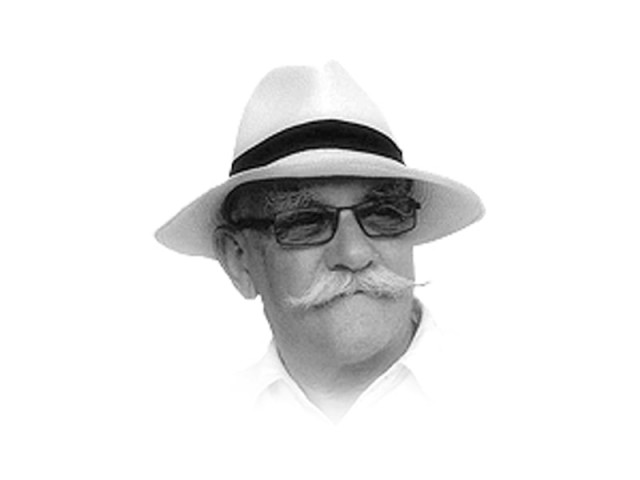A time of bridges
Despite all-too-obvious perils, Pope, Nawaz-Modi have made an effort to at least envision a bridge's superstructure.

The writer is editorial consultant at The Express Tribune, news junkie, bibliophile, cat lover and occasional cyclist
Close to home were Prime Ministers Nawaz Sharif and Narendra Modi. The newly-elected prime minister (PM) of India invited the heads of all the neighbouring states to his swearing-in. It was a clever move. Brotherly love is hardly writ large in the relationships between several of them, and relations between Pakistan and India have been in the freezer since the Mumbai attacks in 2008. The peace process, such as it is, on hold. The two men met, shook hands, and went off for a tete-a-tete that was more about getting-to-know-you than the nuts and bolts of foreign policy — which is not what PMs do anyway. It will be down to their respective teams to work out the detail of what comes next, but it is the PMs who will set those wheels in motion. An invitation to Mr Modi to visit Pakistan was extended and accepted. A bridge not so much built as progressing to the working/drawing stage.
Half a world away, Pope Francis, head of the Catholic church, visited Israel and Palestine, and in doing so inserted himself, presumably wittingly, into that most intractable of modern conflicts. The visit produced two iconic images, one of him at the Wailing Wall in Jerusalem embracing faith leaders of both Islam and Judaism; the other, leaning against the graffiti-emblazoned section of wall in Jerusalem that divides Palestinian territory from that controlled by Israel. Pope Francis has invited both Israeli and Palestinian leaders to the Vatican for peace talks. Could he succeed where everybody else has failed? Who knows, but it is another bridge worth scouting out.
Thirdly, and with the least fanfare, the Archbishop of Canterbury, Justin Welby, leader of the global Anglican community, started a week-long visit to Pakistan, India and Bangladesh. To say that the Christian community in Pakistan is beleaguered understates the case by several orders of magnitude. Christians, along with members of other religious minorities, are fleeing for their lives from Pakistan. Scarcely a day passes without a report from somewhere in the country of an outrage against a minority group.
The murder of an Ahmadi doctor in Rabwah has sent a ripple of horror around the world, tarnishing the image of Pakistan. A poor Christian woman accused of blasphemy after a tiff in a field lies almost forgotten in a jail. A lawyer defending a Christian man also accused of blasphemy was killed in Multan. The list goes on.
Those that commit these crimes care little for the reputation of their country or the standing of their faith in the eyes of the world; and they do lasting damage to both every time their hatreds are seen by the world’s unforgiving eye.
Whether Archbishop Welby will be able to build anything that might at a passing glance look like a bridge across the multiple divides has to be doubtful. The mood music of extremism is playing in the ‘Mall of Intolerance’. Moderate voices command little attention, either in the media or on the street corner.
The archbishop is fishing in toxic waters, but so are Pope Francis, Narendra Modi and Nawaz Sharif. Despite the all-too-obvious perils that lurk within the deeps, these men have made the effort to at least envision a superstructure — the supporting arches that have to be made before the bridge emerges. It is rare indeed for the Vatican to put a finger on the levers of global politics, and rare for the men of power in India and Pakistan to shake hands amicably. Yes, bridges can be built even across the darkest streams.
Published in The Express Tribune, May 29th, 2014.
Like Opinion & Editorial on Facebook, follow @ETOpEd on Twitter to receive all updates on all our daily pieces.















COMMENTS
Comments are moderated and generally will be posted if they are on-topic and not abusive.
For more information, please see our Comments FAQ